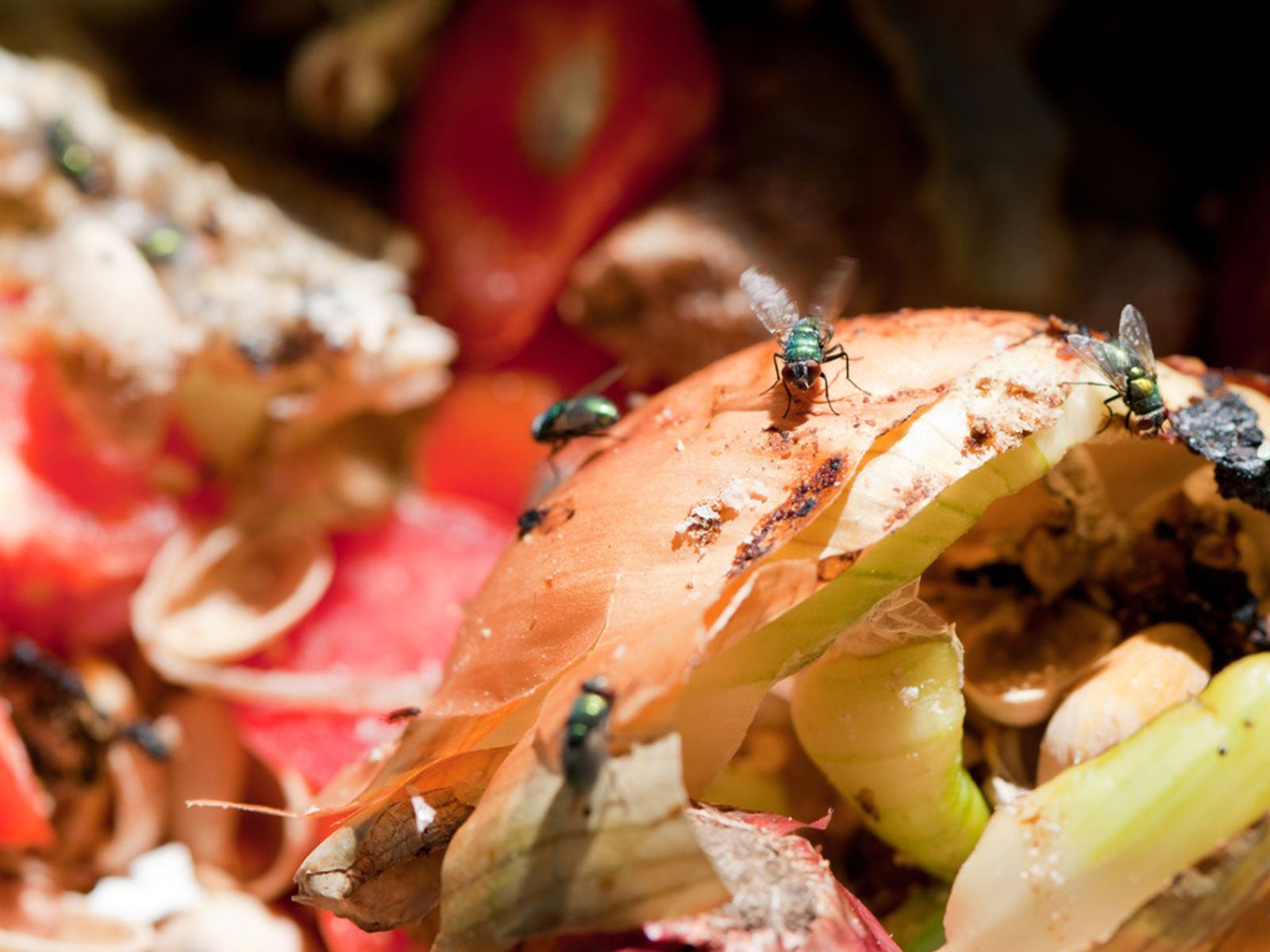Dealing With Flies In The Compost: Should I Have A Lot Of Flies In My Compost?


Sign up for the Gardening Know How newsletter today and receive a free copy of our e-book "How to Grow Delicious Tomatoes".
You are now subscribed
Your newsletter sign-up was successful
Your compost bin is filled with kitchen scraps, manure, and other spoiled vegetable matter, so a logical question would be, “Should I have a lot of flies in my compost?” The answer is yes and no.
Flies in Compost Bin
If you don't build your compost pile in the right way, you may have a lot of flies around the bin constantly. On the other hand, good compost pile management is not only a great way to create more of that black gold for your gardens, it's the best way to keep houseflies in compost to a minimum. Houseflies are known to spread a number of human diseases, so their appearance near your compost is not only annoying, but bad for your health and that of your family. Take good care of your compost pile to help prevent the spread of flies.
Reasons and Fixes for Houseflies in Compost
Most pests and houseflies appear in compost piles because they are filled with their natural food. Once they eat, they lay eggs in the same area, trying to guarantee a food supply for their young. These eggs hatch into larva, or maggots, in a few days, compounding the “ick factor” connected to flies. Leave your compost heap alone long enough and you could have a scene out of CSI in the back of your yard. Compost pile management is the fix for this problem. Compost flies will only live when the temperature is right, and if they have a ready supply of food. Beginning with the food, always bury your green, or wet, ingredients with brown ingredients topped with a layer of soil. If the manure and rotting vegetables aren't on top of the soil, the flies can't get to them easily. Turning the pile on a regular basis will increase the oxygen in the middle of the heap, encouraging the organisms that decay the pile, and heating up the interior in the process. Keep the pile level instead of letting it pile up in the middle, to prevent cooler edges and a warmer center. If you have a problem with flies in compost bin, begin by turning and then raking the pile every day. Continue this until the larva die and the flies move on. When the problem is fixed, or the air cools down considerably, reduce the turning and raking to twice a week. You'll still create enough heat to keep the flies away, but won't have to do as much physical work.
Sign up for the Gardening Know How newsletter today and receive a free copy of our e-book "How to Grow Delicious Tomatoes".

Anne Baley is a garden writer who specializes in practical, budget-friendly growing techniques for home gardeners. She covers topics ranging from vegetable gardening and edible plants to ornamental landscaping and seasonal care. With a creative background that includes work as a photographer and college representative, Anne brings both resourcefulness and imagination to her writing. After spending much of her life gardening in Michigan, she relocated to Florida, where she continues to explore new plants, climates, and growing challenges from her home near the Atlantic coast.